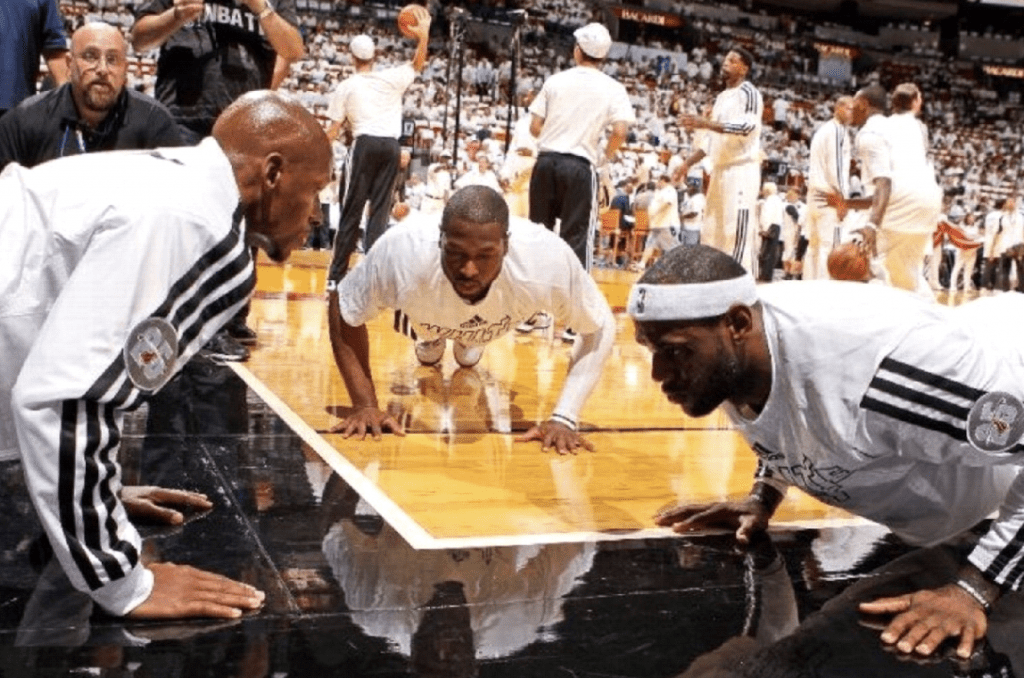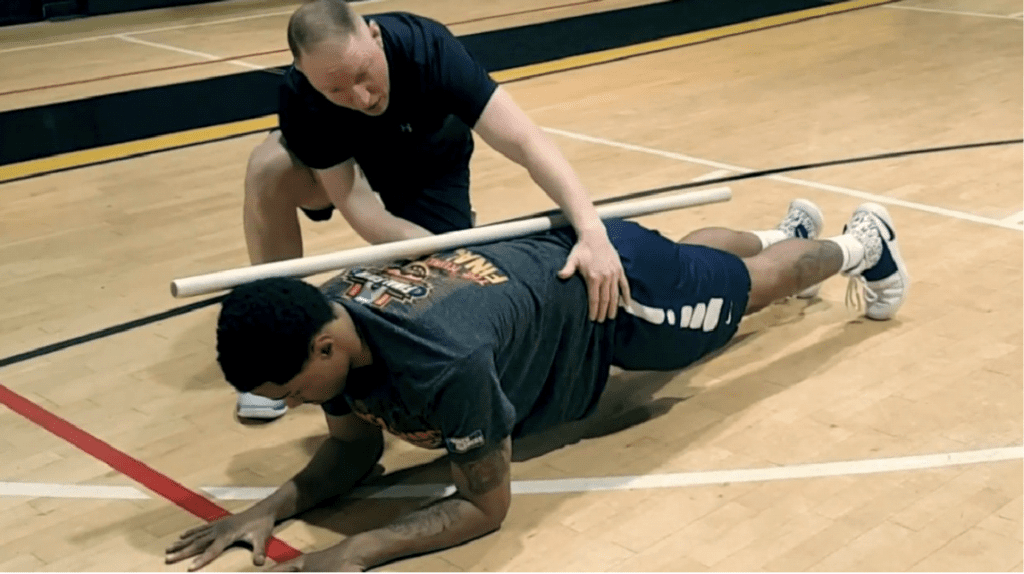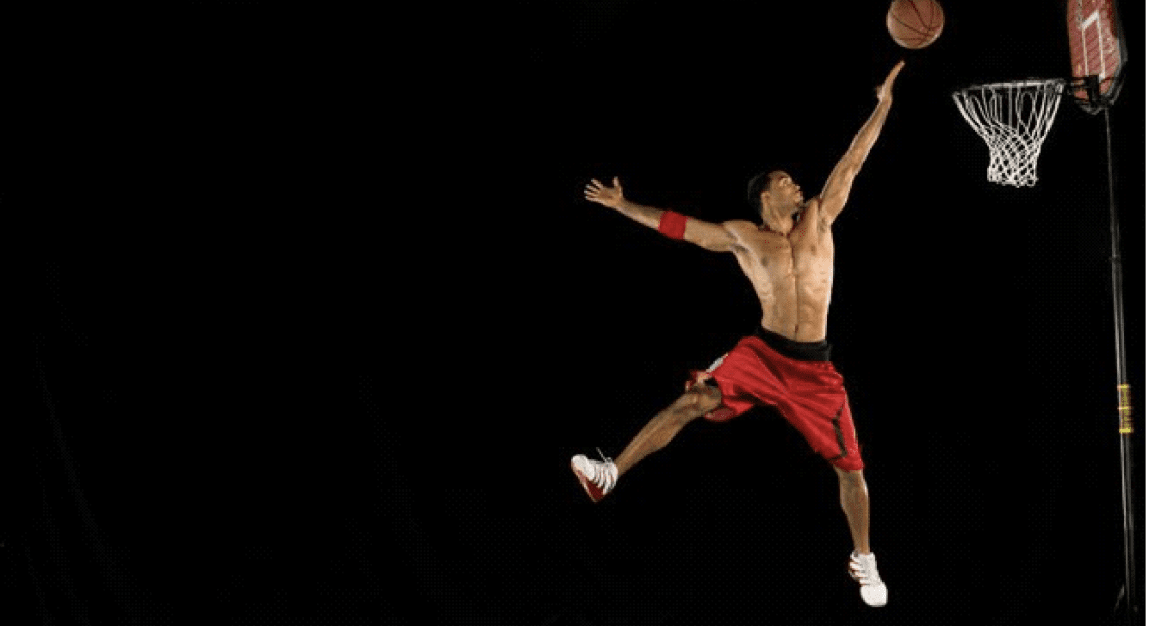As the NBA season comes to a close and Milwaukee Bucks fans celebrate a championship-winning season, many of us often wonder how players remain in shape. Unless you’re a professional sports handicapper, keeping up with the NBA teams and their player fitness routines probably isn’t on the agenda. Well, look no further, as we take a closer look into some fitness routines that keep professional basketball players in tip-top shape.
Most sport-specific programs cover multiple disciplines such as speed, agility, power etc. But at the root of each athlete is a solid foundation of core strength, stability/joint mobility, and elite conditioning. Those without a solid foundation will become victims of injuries, and if this reoccurs, mental deterioration will also take effect.
Below, we’ll preview a few basic training methods specific to basketball but can also transition into benefits in many other sports, and remember, you don’t have to be aiming for an NBA title to achieve these workout methods.
Skipping & Mountain Climbers
Skipping is a simple yet incredible method when looking to evolve your muscular and cardiorespiratory endurance. When achieved correctly, it’s considered a low-impact cardio workout and is safe for most people. Not only can you skip in the comfort of your garden, but the rope itself is significantly cost-effective.
If you can work towards a time range of 15-20 minutes of skipping with minimal rest, you’ll be accomplishing a cardio workout to the equivalent of a 30-minute moderate-intensity job.
Remember to stretch accordingly before your skipping session, and if you don’t have a rope available, the mounter climber is a suitable substitute. Bear in mind, the mountain climber is significantly more demanding, and your rest periods will be longer. For those unsure how to perform a mountain climber, you can click HERE.
Push-ups
Of course, you will probably be familiar with the classic push-up, but this callisthenic exercise has remained supreme in the fitness industry because it engages several major muscle groups. Core muscles, joint stabilizers, and a tremendous anaerobic conditioning component make the push-up a go-to exercise for most NBA players.
A clean form is essential when attempting push-ups to protect your lower back, and routines shouldn’t exceed reps of thirty to begin with; in time, you’ll naturally raise your rep count. 
Image link HERE.
Lunges & Squats
No sport-specific program would be legit without the use of some high-intensity leg work.
Lunges & Squats are two of the most effective leg and core exercises that directly assist a lot of sport-related movements. They are often used before the more intense power exercises like the deadlift, snatch, and clean, which are also used regularly in athlete training programs.
Again, form is vital to secure your safety, so having a professional trainer observe your technique can be beneficial.
Planks & Bridges
Workout injuries occur when muscles are fatigued. To improve your chances of avoiding injuries, you must strengthen your body by increasing strength and muscular endurance to your entire core. The best way to achieve this is by introducing static and dynamic plank and bridge drills to your workout.

Image link HERE.
Sit-ups & Core Rotation
Once you’ve reached a stage where your core is conditioned and strong, you can work on functional movements to strengthen particular motions that will be emulated in the game.
Ideally, with a workout partner, make use of some medicine balls and hit the floor. In turn, you can try out three sets of 15 reps of sit-ups, leg raises, crunches, and rotation drills.
Crunches are nothing more than a modified sit-up where your shoulder blades always leave the ground, but your lower back stays in contact with the floor. In a sit-up, your entire upper body comes off the ground. Leg raises can be achieved with your partner standing over your head with their feet to the side of your ears, grip onto their ankles as you raise straightened legs to their outstretched arms. Rotational core exercises are when a twisting motion is incorporated. You can twist during a sit-up or use a medicine ball to do some Russian twists.
Suicides & Lateral Shuffling
Perhaps the most grueling aspect of an athlete’s workout are suicides.
Coaches enjoy telling their squad to line up just before practice ends by testing their athletes physically and mentally.
Suicide is a series of sprints between four different distances: in basketball, players sprint to the foul line and back. Immediately sprint to the half-court line and back, then to the far foul line and back to finally finish with a sprint to the far baseline and back.
Lateral shuffling falls under the same protocol as the suicides, and they engage the adductors and abductors of the thigh.







